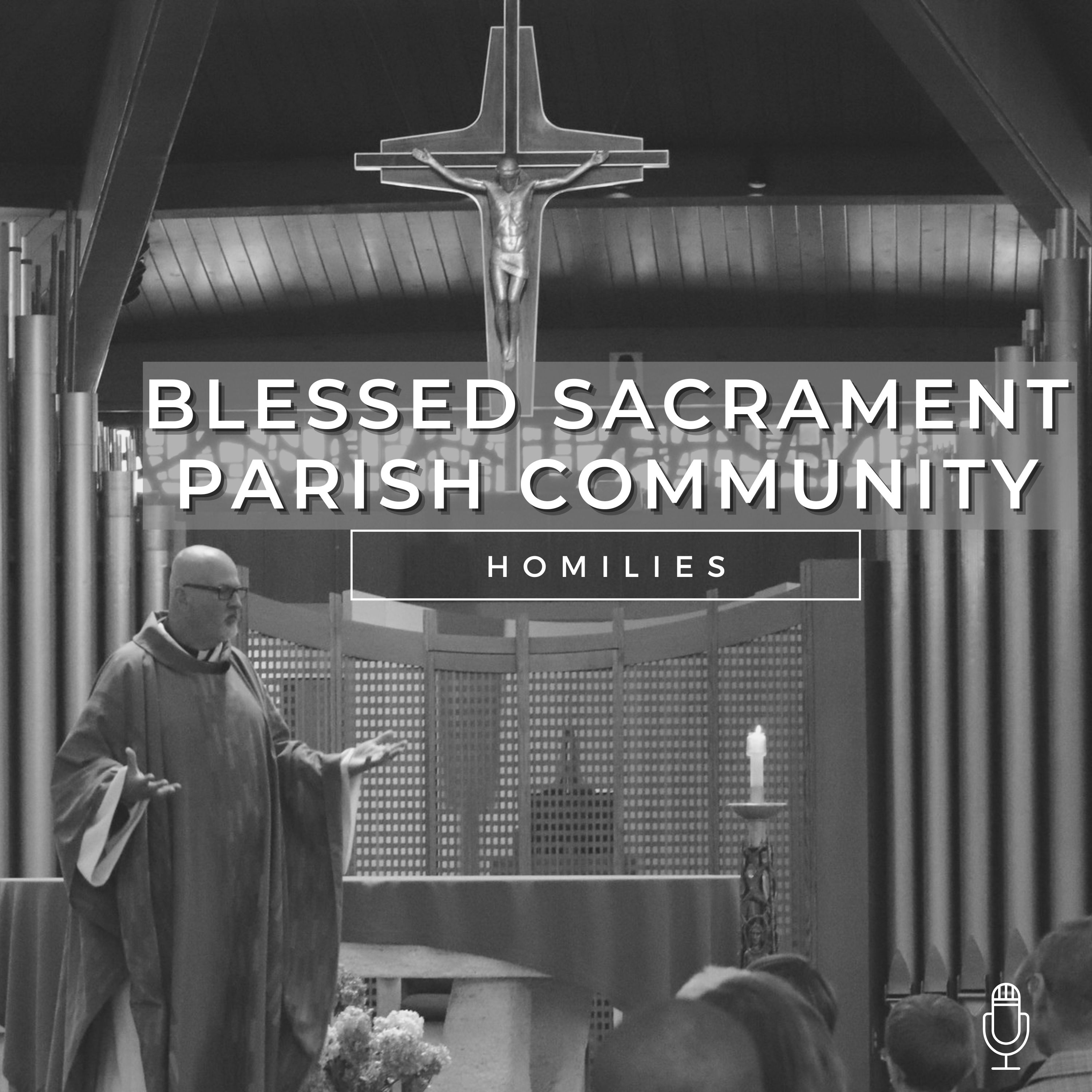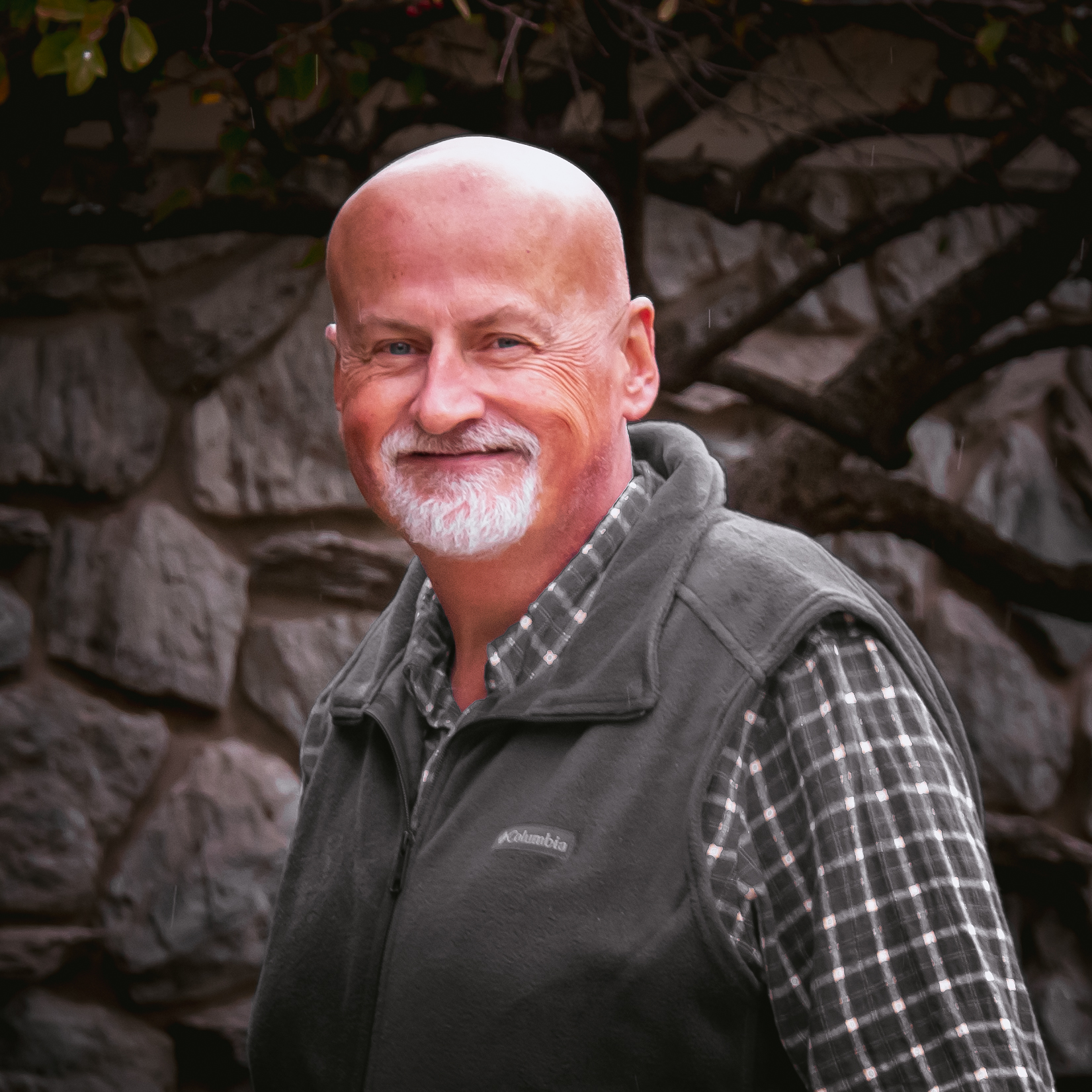Episode Transcript
[00:00:12] Speaker A: Welcome to the blessed Sacrament Homilies podcast where our mission is to help everyone recognize and experience the presence of God. We hope you are nourished and encouraged by the word. Thank you for joining us.
[00:00:26] Speaker B: The Lord be with you and with your spirit. A reading from the holy gospel according to John glory to you, O Lord. Jesus said to the crowds, I am the living bread that came down from heaven. Whoever eats this bread will live forever, and the bread that I will give is my flesh for the life of the world.
The Jews quarreled among themselves, saying, how can this man give us his flesh to eat?
Jesus said to them, amen. Amen. I say to you, unless you eat the flesh of the son of man and drink his blood, you do not have life within you. Whoever eats my flesh and drinks my blood has eternal life, and I will raise him on the last day.
For my flesh is true food and my blood is true drink. Whoever eats my flesh and drinks my blood remains in me and I in them. Just as the living Father sent me and I have life because of the Father, so also the one who feeds on me will have life because of me.
This is the bread that came down from heaven.
Unlike your ancestors who ate and still died, whoever eats this bread will live forever. The gospel of the Lord.
[00:01:56] Speaker A: Praise to you, Lord Jesus Christ.
[00:01:59] Speaker B: If you were here last week, you heard me say that I think deep down we all believe that if the world just operated according to what we think, everything would be perfect.
And I also said, with few exceptions, that's virtually never true.
Well, here's one of those exceptions.
If the world operated the way I think it should operate regarding this, I think we'd be better off. And you don't have to believe me, but listen to my argument because I think it might be fairly convincing.
Over the last few years as a church in the United States, we have been in what's called the eucharistic revival, and it was based on people's responses to a question about belief in the real presence of Jesus Christ in the Eucharist.
And first off, I think the way the phraseology was was a little off. And I think if you had a probe people, you'd have found out that they believed a lot more than the initial evidence showed.
But in response to that, there have been events and ways of reinforcing our belief in real presence.
But the problem is, in my correct opinion, that it is emphasized the what that bread and wine become Jesus body and blood.
And it is emphasized the how through Jesus sacrifice, the intercession of the Holy Spirit and our church's communal memory of what happened at the last Supper, that we believe that bread and wine was transformed. But here's where I think the mistake lies. In order to fully understand, and I think fully believe in real presence, we have to deeply understand why.
And the why is at the heart of it. The why is so that Jesus Christ can truly become one with us, that he can strengthen us, he can heal us, he can comfort us.
And even more, he allows us to be his living, breathing presence in the world.
Through our sharing in the Eucharist, we get transformed into what we eat. We become the presence of Jesus Christ when we're at our best and when we allow that presence to shine forth from who we are.
And the whole reason we celebrate the Eucharist is that reality, to become one with Christ and also to make his presence known in the world.
Now, I think there's a reason why we tend to shy away from that, why a little bit. And that's because when we recognize that Christ is present in us and we recognize that we have an obligation to make him present to others, we also recognize that sometimes that's very hard work, because it means we have to set aside everything that makes us self centered, everything that makes us selfish and greedy, everything that makes us hold on to grudges, everything that makes us vengeful, everything that makes us mean.
And we don't always want to do that.
We want to hold on to those human weaknesses that can easily become the center of who we are.
But because of the Eucharist, the gift that we celebrate around this altar, we have that awesome potential to get rid of all those things. We have the potential to make Christ present to those we meet.
And here's the last part of that, that we also recognize that our brothers and sisters do the same for us. That they make Christ present and active in our lives, that they not just represent Christ, they truly are Christ.
It's an amazing gift. And I think our eucharistic revival will never be complete until we focus on that.


